Heart + Mind
Orin Smith has led Starbucks, the University of Washington and a host of impactful organizations with visionary intellect and humble humanity
When we reminisce, with no small amount of caffeinated civic pride, on the creation of Starbucks, our thoughts inevitably return to that hallowed original store in Pike Place Market, circa 1971, or perhaps to the freewheeling entrepreneurial zeal of Howard Schultz.
But the Starbucks we know today—the hometown company that has redefined the coffee experience around the world without losing its soul—is as much a legacy of Orin Smith (BA 1965).
During his 15 years at Starbucks, the unassuming former president and CEO catalyzed the company’s unprecedented expansion. He helped create the famed Starbucks culture and ethic of uncompromising commitment to people and the planet. And he helped craft Starbucks into one of the world’s most recognized and celebrated brands.
“What we were able to accomplish at Starbucks gives me great satisfaction,” says Smith, characteristically distributing credit far and wide.
But his is a singular story of remarkable leadership, humble humanity and meaningful philanthropy that neither begins nor ends at Starbucks.
Making his mark
After growing up in Chehalis, Washington, Smith engaged his curious mind at the University of Washington with studies in accounting, finance, economics, statistics and political science. He was elected to Phi Beta Kappa and Alpha Gamma Sigma, the honor society for business students, and graduated in 1965 with a BA in business administration. He earned an MBA from Harvard soon after.
Smith made his first significant mark in the business world during 14 years with what is now Deloitte, eventually leading its Pacific Northwest consulting practice. He also served as CEO of two international transportation companies, and as the level-headed chief policy and finance officer for Washington governors Dixie Lee Ray and Booth Gardner.
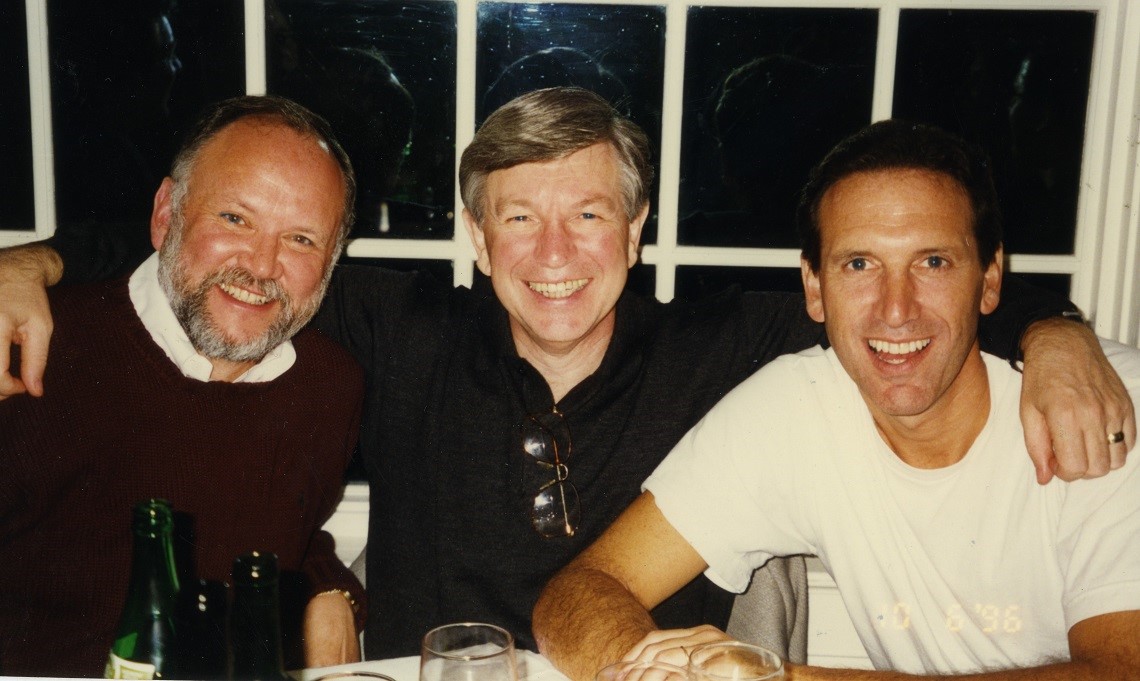
When Smith signed on to be Schultz’s chief financial and administrative officer at Starbucks in 1990, the company looked more like a scrappy startup than a global juggernaut.
Compared to the more-established businesses and industries he had experienced, “Starbucks was a risky venture,” he says. “But the store performance was fundamentally sound, the company was growing rapidly, and we had interest from significant venture capital firms.”
Unprecedented growth
Smith’s initial charge was to lead development of the financial functions. But his job description expanded seemingly by the day. He soon headed roasting, purchasing, distribution, store construction and human resources, among his “other duties as required.” Along with Schultz, he managed the company’s initial public offering in 1992.
Smith was promoted to president and chief operating officer in 1994, assuming overall responsibility for domestic and international retail and wholesale operations. And he served as president and CEO from 2000 until his retirement in 2005.
During his years of leadership. Starbucks grew from 45 stores to nearly 10,000 in 33 countries, maintaining an astounding 37 percent annual compound growth rate in revenues, earnings per share and share price.
“Orin was the yin to Howard Schultz’s yang,” says long-time Starbucks associate Anne McGonigle (BA 1985), “He helped turn Starbucks from a handful of Seattle coffee shops into one of the most recognized and respected brands in the world.”
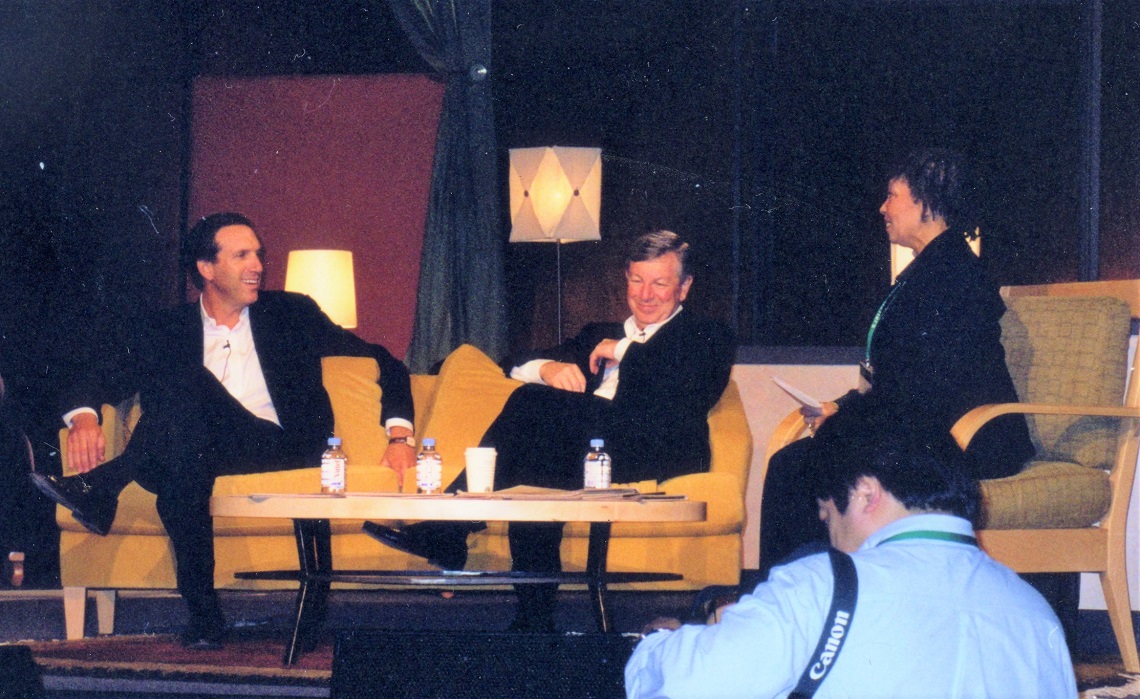
For his part in this, Smith received the Foster School’s Distinguished Leadership Award in 2001 and Harvard Business School’s Alumni Achievement Award in 2002—making him one of only 92 graduates (among approximately 50,000) at the time to have received the school’s highest honor. Institutional Investor named him “Best CEO” in the restaurant category from 2002 to 2004. Businessweek named him one of the “Best CEOs in America” and CEO Magazine named him “Best CEO in the Northwest” in 2004.
During Smith’s tenure as CEO, Fortune named Starbucks one of the “10 Most Admired Companies in America” in 2003, 2004 and 2005, and one of the “100 Best Places to Work in America” every year from 2000 to 2005.
These honors recognized not only what the company did with Smith at the helm, but also how they did it.
Starbucks was more than an economic miracle. It was a movement.
Different kind of company
In Smith’s first year at Starbucks—and just before opening its shares to Wall Street scrutiny—he and the senior executive team of Schultz, Howard Behar, David Olsen and several others codified the company’s unorthodox philosophy into its famous mission and guiding principles.
Starbucks would be “performance driven, through the lens of humanity,” to borrow its current vernacular.
Pledges to create a workplace of respect and dignity, value diversity, source and serve the highest quality coffee, satisfy customers, and make a positive impact on the community and environment preceded—and really enabled, in the Starbucks way of thinking—the final principle of profitability.
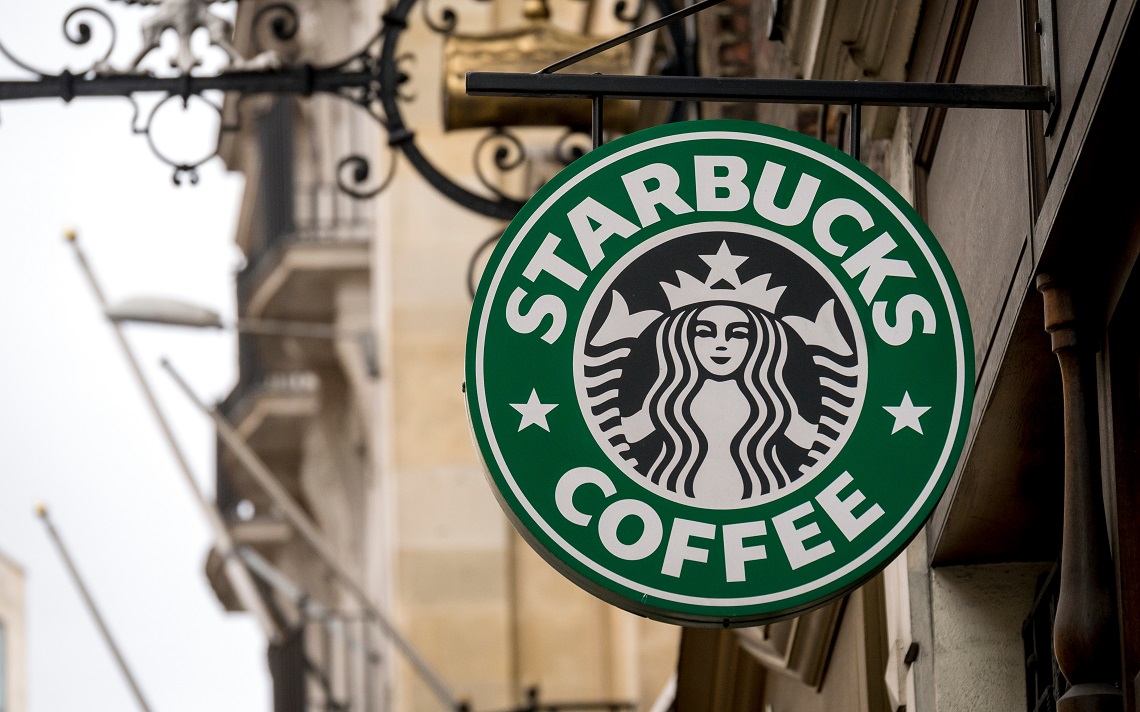
And this enlightened corporate ethic, so radical at the time, became the company’s polestar, guiding every decision and creating a culture to inspire at every level.
“We communicated this mission and these values consistently—and repetitively—across the company,” Smith recalls. “And, most importantly, our senior management team modeled these values and principles until they became part of the fabric of the organization.”
Lens of humanity
It didn’t take long to weave principles into untearable fabric.
Premium pay and diversity hiring were only the beginning. Before going public in 1992, Starbucks instituted health care benefits for all—even part-timers—and began offering “Bean Stock,” the opportunity for every partner (the company’s meaningful term for employees) to own shares in the company.
A few years later, Smith helped forge an unconventional partnership with the non-profit Conservation International to develop Coffee and Farmer Equity (C.A.F.E.) Practices, a unique set of comprehensive standards that ensure ethical and environmentally responsible sourcing.
But would this generous human ethic be able to survive in a profit-seeking organization with global ambitions?
“I don’t think any of us were certain that the culture we created from our principles could be sustained as we expanded across North America and, especially, into the international markets of Europe, Japan, China and the Middle East,” Smith recalls.
The Starbucks secret
As it happened, Starbucks’ uncompromising principles proved essential to its astounding long-term success. Smith says that the company’s singularly values-driven culture has been its ultimate competitive advantage as it has grown to more than 23,000 stores in 67 countries today—a global brand built upon ubiquity, quality and word of mouth rather than traditional marketing.
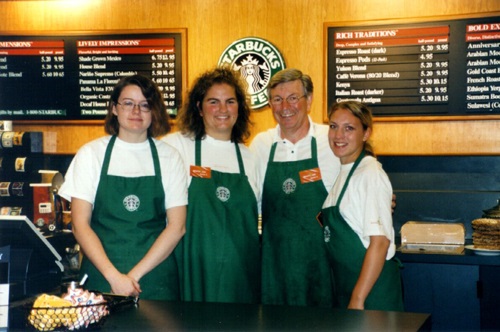
“At the root of our culture is this commitment to people,” Smith says. “And this resonates in every culture around the world. Our principles and the culture they built were—in my view and in many others’—the reason for our great success. Our fortunes soared wherever we went.”
Has Wall Street finally fallen for the Starbucks model? Not quite. “Many people would say that we paid our people and our coffee growers more than we had to, that we offered benefits that weren’t necessary, that we invested too much in our communities,” Smith says. “I don’t think they fully appreciate the importance of these things to our business.”
“Our philosophy was that we needed to take care of our people. And if we were able to do so, they would be inspired to take care of the customer. And the customer would take care of the company,” he adds. “I think you’ll find that to be Starbucks’ operating philosophy even today.”
Indeed, in the years since Smith’s retirement, the Starbucks principles have driven even more progressive programs, including education assistance and the recent campaign to hire military veterans.
“It is no exaggeration to say that Orin played a foundational role in corporate America’s rethinking of the way that employees and customers are viewed and treated,” says Jim Jiambalvo, dean of the Foster School.
It’s difficult to imagine what Starbucks might be today had its pivotal leaders not forged its culture upon a foundation of unyielding principles, had they cast off the lens of humanity in pursuit of short-term gains.
“I think it would be a very different company,” Smith says. “Much smaller, much less successful and much less appreciated by our partners, customers and communities. I think a lot of our competitors would have fared much better. Many tried to copy what we have built. But what they could never replicate was the company’s heart and soul, that one-of-a-kind culture that was the manifestation of our values and principles.
“I’m proud of Starbucks for many reasons. But probably most of all for that culture and how it is regarded by partners and customers.”
Beyond Starbucks
After stepping down as CEO of Starbucks in 2005, Smith retired but was far from finished. He went on to serve on the boards of directors of several blue-chip firms, most prominently the Walt Disney Company (where he’s lead independent director) and Nike (where he recently retired as backup to chairman Phil Knight).
“When asked in 2010 who would I pick as chairman if I were hit by a bus,” Knight says, “my pick was Orin Smith. He is outstanding in every way—as a businessman, as a leader, as a moral man.”
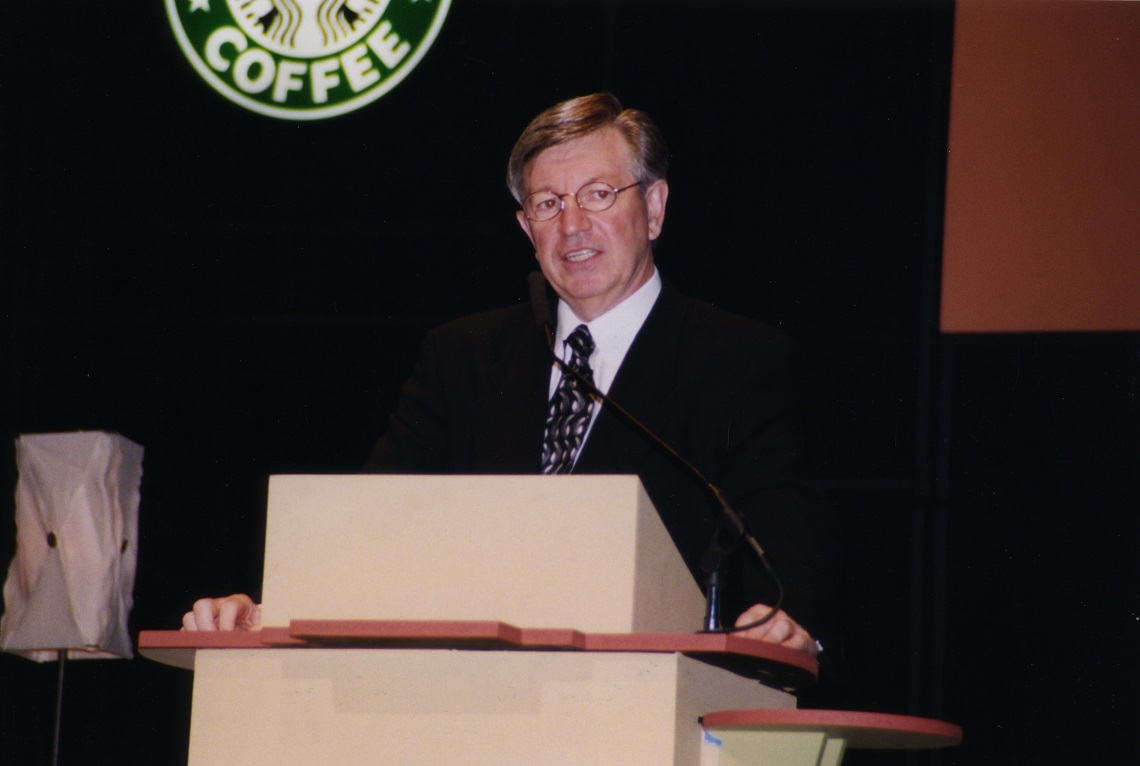
Smith chaired the Starbucks Foundation from his retirement until 2014. The foundation, created during his Starbucks presidency, supports educational, community and environmental efforts in the United States and in coffee and tea growing regions around the world.
And Smith continues to serve on the board of Conservation International, the organization with which he partnered in the 1990s to develop best practices for cultivating coffee and tea in a way that treats farmers fairly and protects the biodiversity of the fragile, fertile growing regions. Today, CI works to protect the environment and humanity in 25 countries.
Back to school
Smith’s “retirement” has also been a boon for the UW.
While still leading Starbucks, he joined the advisory boards of the Foster School and UW Medicine, which he later chaired. He continues to serve on UW Medicine’s Strategy and Strategic Initiatives Committees.
At the university level, Smith is former chair and treasurer of the UW Foundation Board. He also made great impact as a UW Regent from 2009 to 2015, serving as chair in 2013-2014.
“Orin is a thoughtful partner and advocate for the University of Washington, bringing leadership and quiet determination to all the projects he touches,” says Jeff Brotman, the co-founder and chair of Costco who served with Smith on the Starbucks board and at the UW.
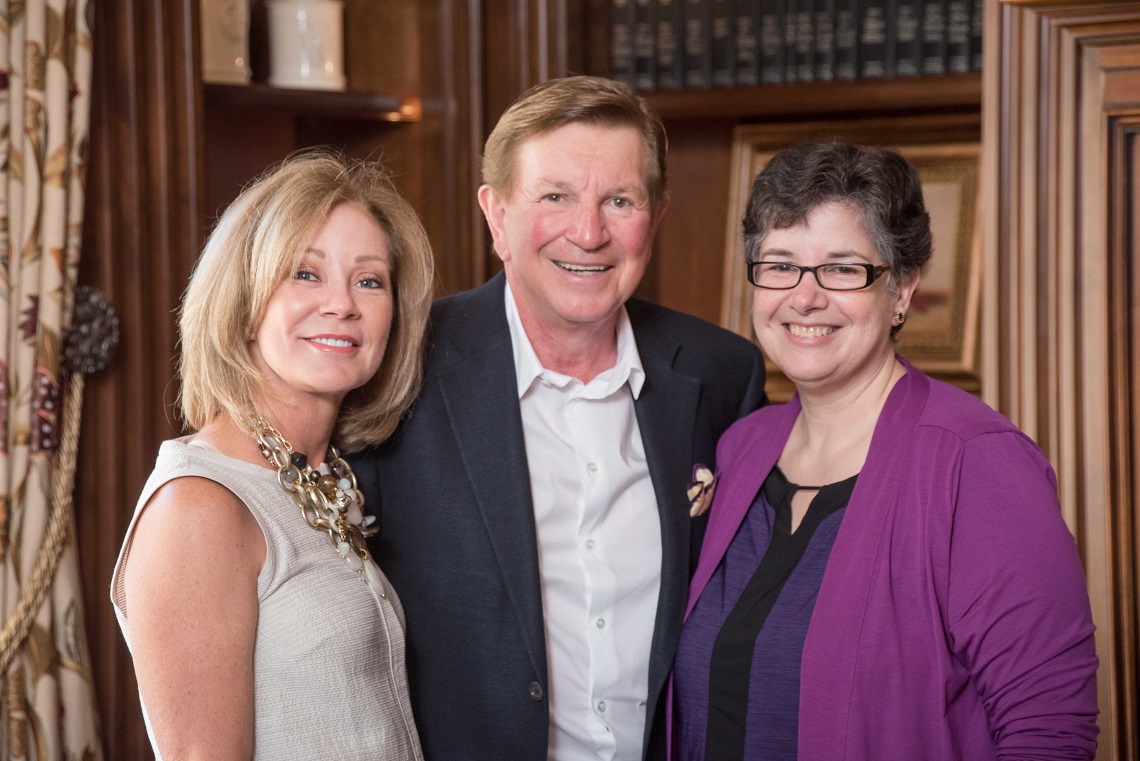
And then there is his staggering philanthropy. Smith and his wife Janet are Presidential Laureates at the UW. Their generosity has provided facility support as well as endowed funds that include the deanship at the Foster School and a student fellowship endowment that will launch careers (and companies) in perpetuity. The Smiths also have supported stem cell research and facilities at UW Medicine and scholarships at the Evans School.
Both Starbucks and Nike endowed scholarship funds at the UW in Smith’s honor upon his retirement.
Now Orin and Janet Smith are making perhaps their greatest contribution yet to the UW, serving as co-chairs of its historically ambitious philanthropic campaign: Be Boundless — For Washington, For the World.
“I’ve had a great experience with every part of the institution and I get a lot of satisfaction out of participating and giving back in these kinds of ways,” Smith says.
Kid from Chehalis
More than a decade after his amazing run with Starbucks, Smith remains both in highest regard and in highest demand. He continues to apply his unique balance of leadership—marrying vision and efficacy, ambition and principles, confidence and humility—toward furthering worthy causes and institutions.
“Orin is simply one of the most thoughtful, collaborative and humble leaders I have ever known,” says Bill Ayer (MBA 1978), the retired chairman and CEO of Alaska Airlines and current chair of the UW Board of Regents. “His leadership style and clear-minded reasoning are legendary. His calm demeanor and deep understanding of issues and people make his advice and counsel highly sought after.”
Not bad for a kid from Chehalis. But then, maybe his humble beginnings have everything to do with all that Smith has accomplished, and how.
“Earnest, compassionate, humble. A principled leader and man of exceptional integrity. That was and is the essence of Orin Smith,” adds Anne McGonigle. “You could take the kid out of Chehalis and send him to the University of Washington, Harvard Business School and the heights of business success, but you could never take Chehalis out of the kid.”
Orin Smith died in October of 2016.
Our philosophy was that we needed to take care of our people. And if we were able to do so, they would be inspired to take care of the customer. And the customer would take care of the company.
